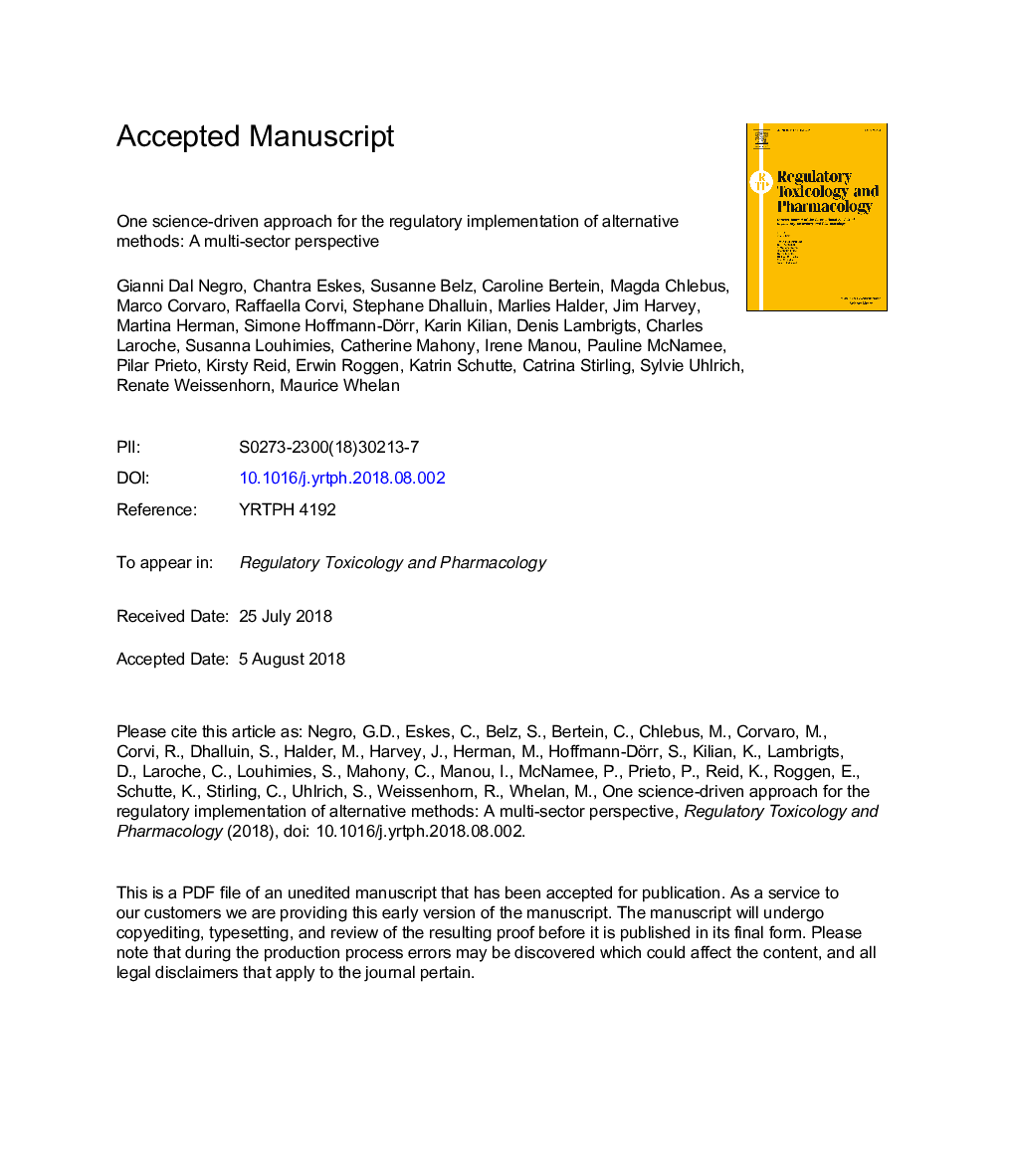| Article ID | Journal | Published Year | Pages | File Type |
|---|---|---|---|---|
| 10137721 | Regulatory Toxicology and Pharmacology | 2018 | 39 Pages |
Abstract
Although clear progress was acknowledged in animal testing reduction and refinement thanks to an integration of scientifically robust approaches, the following challenges were identified: i) further characterization of toxicity pathways; ii) development of assays covering current scientific gaps, iii) better characterization of links between in vitro readouts and outcome in the target species; iv) better definition of alternative method applicability domains, and v) appropriate implementation of the available approaches. For areas having regulatory adopted alternative methods (e.g., vaccine batch testing), harmonised acceptance across geographical regions was considered critical for broader application. Overall, the main constraints to the application of non-animal alternatives are the still existing gaps in scientific knowledge and technological limitations. The science-driven identification of most appropriate methods is key for furthering a multi-sectorial decrease in animal testing.
Related Topics
Life Sciences
Environmental Science
Health, Toxicology and Mutagenesis
Authors
Gianni Dal Negro, Chantra Eskes, Susanne Belz, Caroline Bertein, Magda Chlebus, Marco Corvaro, Raffaella Corvi, Stephane Dhalluin, Marlies Halder, Jim Harvey, Martina Hermann, Simone Hoffmann-Dörr, Karin Kilian, Denis Lambrigts, Charles Laroche,
